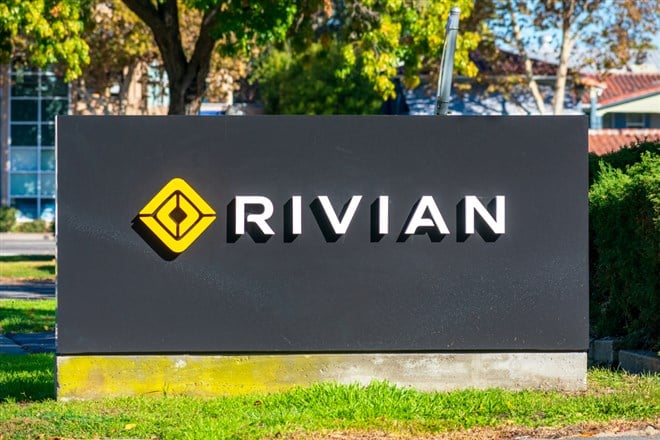
Rivian (NASDAQ: RIVN) is an American electric and automotive maker, that is based out of Irvine, California. Rivian is a part of a growing number of electric car makers that have entered the competitive automotive market in the past decade, others include Tesla (NASDAQ: TSLA), Lucid Motors (NASDAQ: LCID), and Volvo-owned Polestar (NASDAQ: PSNY).
Rivian has attracted attention and investment from important players in the auto-industry, including the likes of Ford (NYSE: F) but the stock has struggled and is now down over 66% from its 52-week high, and investors are taking a second look at the company, as EV companies show signs of weakness with the current economic environment. The stock fell over the past 6-months as earnings missed estimates, and broader market sentiment continued to weigh on the price.
The Irvine-based EV maker has been in the news for the past few years due to its innovative products, but the results haven't lived up to expectations. Rivian has continued to announce a range of new models throughout the year as it looks to ramp up production and has partnered with the likes of Amazon (NASDAQ: AMZN), which resulted in the stock rallying. However, things have been uncertain for the past couple of months, as management decided to lay off 6% of its total workforce, or about 800 workers. Rivian isn’t the only automaker laying-off workers, Tesla has been laying-off workers as well recently to improve productivity. Rivian’s management did re-iterate that its production was on target, and none of the workers that were laid off were in the manufacturing unit. But the outlook isn't as certain as it was in 2021
Rivian’s production outlook remains central to stock
Rivian has outlined that it plans to produce 25,000 units in 2022, and during the Q1 it produced close to 7000 vehicles. The company has significantly increased its production since the first week of January when it produced 147 vehicles, and production has not increased to 399 vehicles through the end of June. But in order to meet forecasts, production would have to be increased to 700 vehicles per week.
Furthermore, the company faces a number of issues as it looks to increase output. Lithium prices and commodity prices have weighed on earnings, subsequently, Rivian has had to increase prices for its R1T pickup by 17%, and R1S SUV by 20%. That would put the current base price of the models at $79,500 and 84,500 respectively. Customers reacted negatively to the news of the price increases, but Rivian remains adamant that demand will remain strong through the next couple of years.
Growth, and earnings outlook
Analysts have indicated that the company will grow anywhere from 35%-40% (CAGR), through 2030, which would put the 2030 sales anywhere from 200,000-250,000 vehicles per year, and a revenue of around $16-18 billion.
Rivian’s second quarter is expected to produce around $340-350 million in revenue, a significant increase over the second quarter in 2021. If the company is able to achieve its target revenue for the year it could come in at $2 billion, which would put end-of-year price-to-sales (P/S) at 15x.
Will Rivian’s valuation and future holdup?
The current valuation is not cheap by any standard, and Rivian is increasingly relying on a significant production ramp-up to meet its targets. While investors have compared the company to the likes of Tesla, Rivian does not have anywhere near the access to capital that Tesla has. Furthermore, Tesla went through a significant period, where supply-chain issues affected production negatively. All these issues could affect Rivian as well over the next couple of years.
Additionally, Rivian's stock currently trades at 1.5-1.7x 2030 P/S, which is quite steep if you consider that the automotive market is a low-margin market.
In order to justify the valuation, Rivian would have to produce much higher margins than your average auto-maker, and investors are betting that the company can achieve margins similar to that of Tesla’s. Similar to Tesla, Rivian has chosen a direct-sale model, which should help improve margins, but will affect its ability to sell in certain states that prohibit direct-sales. On top of sales issues, the price of Rivian's vehicles also are quite high, and the strategy to sell high-priced automotive trucks may pay off. On the other hand, Rivian is unlikely to make the manufacturing mistakes competitors made, making its operations a lot more efficient.
It remains to be seen whether Rivian can achieve its lofty ambitions, but the company has both positive and negative issues that will need to be ironed out before the fundamentals meet sentiment.




